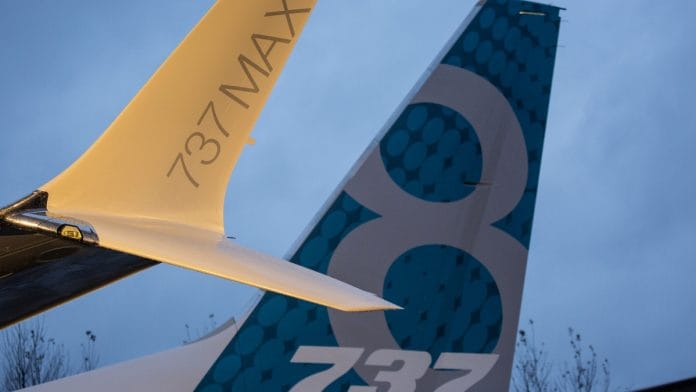Boeing Co. has a long way to go to rebuild its tarnished reputation on safety, but it’s moving in the right direction.
The planemaker on Monday named Beth Pasztor — a 34-year Boeing veteran with a background in engineering and compliance — as the head of a new organization focused on the safety of its products and services. The appointment is in line with the recommendations released last week from a board review of Boeing’s internal oversight and organization following two fatal crashes of its top-selling 737 Max jet.
The change will consolidate Boeing’s accident investigation team, safety-review boards and the Federal Aviation Administration’s engineering and technical delegates under Pasztor. She herself will report to the company’s chief engineer, Greg Hyslop, as well as a board committee dedicated to aircraft safety. Boeing’s engineers, meanwhile, will now also report to Hyslop, rather than their respective division heads. Boeing will also expand an anonymous reporting system for safety concerns and establish a design-requirements program to help ensure best practices are followed.
The nut of all these various moving parts is that there’s now a clearer line of communication for the people actually designing aircraft to register any safety concerns directly with top management. Put politely, it’s a way to reduce the bureaucracy that allowed Boeing’s senior leadership to remain blissfully unaware until after the first Max crash that a cockpit alert tied to a flight-control software system blamed for the accidents only functioned properly for customers who paid extra for additional features. Put more bluntly, it lessens the risk that safety concerns get subsumed by the cash-flow and earnings pressures of meeting specific deadlines.
One of my biggest concerns from the Boeing Max crisis was that the relative duopoly the company enjoys with Airbus SE might shield it from the kind of economic pain that can force a company to make real cultural changes. While everyone realizes the importance of safety, airlines are wary of shifting their orders to Airbus and placing too much power in the hands of one planemaker.
Also read: Boeing is now in ‘endgame’ of getting 737 Max back in the air, says CEO
Shareholders, meanwhile, seem unlikely to reward an emphasis on safety over cash flow; indeed, the shares dropped as much as 1.6 percent on Boeing’s announcement. One way to read Boeing’s commitment to doing the right thing is that the company is bracing for a much tougher regulatory atmosphere amid global blowback. This feels like an honest attempt at a realignment of priorities, though.
It will be years before we can properly evaluate the longer-term impact of what Boeing CEO Dennis Muilenburg has characterized as a “defining moment” for the company, but it’s encouraging that the aerospace giant appears to realize that engineering perhaps took too much of a back seat over the past few years, and that more of those kinds of voices needed to be heard at higher levels. Boeing has committed to making safety-related experience a criteria in selecting future directors, but for now, the bulk of its board lacks an engineering background. That’s true even for some members of the committee now tasked with overseeing aircraft safety. Still, having Pasztor and her organization report directly to the committee helps to ameliorate some of the concerns raised by that dynamic.
Much will depend on concurrent changes in the way the FAA and other global aviation regulators review increasingly sophisticated planes flown by a wider variety of pilots with different levels of experience. But there are signs that more enhanced procedures will be adopted there as well, with the National Transportation Safety Board last week issuing its own list of recommendations for improvements. For both Boeing and regulators, this is all just a matter of words right now. At least they are the right words.
Also read: DGCA calls for checks on 23 SpiceJet Boeing 737 NGs for cracks after US order






